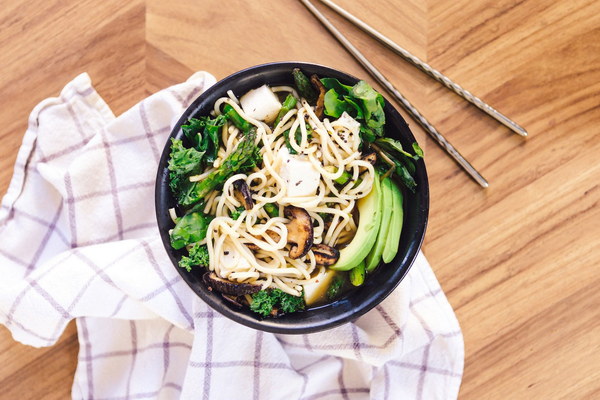Is Having a HealthBoosting Tea After Meals a Good Idea
In today's fast-paced world, finding ways to maintain our health and wellness has become more important than ever. One popular suggestion that often comes up is having a health-boosting tea after meals. But is this practice actually beneficial? Let's delve into the topic and explore the potential advantages and disadvantages of incorporating a post-meal tea ritual into your daily routine.
The Benefits of Post-Meal Tea
1. Digestive Aid: Many traditional teas, such as green tea and peppermint tea, have natural digestive properties that can help ease digestion after a heavy meal. These teas stimulate the production of digestive enzymes and can aid in breaking down food more efficiently.
2. Antioxidant Boost: Tea, especially green and black tea, is rich in antioxidants. These compounds help combat free radicals in the body, which can contribute to aging and various diseases. By drinking tea after meals, you can increase your antioxidant intake and potentially improve your overall health.

3. Weight Management: Some studies have shown that drinking tea after meals can help with weight management. Green tea, in particular, is known to boost metabolism and increase fat oxidation. This makes it a popular choice for those looking to shed a few pounds.
4. Stress Reduction: After a meal, many people experience a feeling of relaxation and contentment. Tea, especially herbal teas like chamomile or lavender, can further enhance this feeling by acting as a natural stress reliever. This can be beneficial for both mental and physical health.
5. Hydration: Tea is a hydrating beverage that can help rehydrate your body after a meal. While it's not as effective as water, it can still contribute to your daily fluid intake and support kidney function.
The Potential Drawbacks of Post-Meal Tea
1. Caffeine Content: Some teas, particularly black and green tea, contain caffeine. While caffeine is not harmful in moderate amounts, consuming too much caffeine can lead to side effects such as insomnia, anxiety, and heart palpitations. It's essential to be mindful of your caffeine intake, especially if you're sensitive to its effects.
2. Interference with Medications: Certain teas can interact with medications, potentially causing adverse effects. For instance, green tea contains compounds that can interfere with the absorption of certain medications. It's crucial to consult with your healthcare provider if you're taking any medications and are considering adding tea to your post-meal routine.
3. Acidity: Some teas, particularly herbal teas, can be acidic. For individuals with acid reflux or other gastrointestinal issues, drinking acidic beverages after meals may exacerbate symptoms. It's important to be aware of your body's reaction to different types of tea.
4. Caloric Intake: While the caloric content of most teas is relatively low, some flavored teas and herbal teas with added sweeteners can contain a significant number of calories. It's essential to monitor your overall caloric intake and choose low-calorie or unsweetened teas if weight management is a concern.
Conclusion
Incorporating a post-meal tea ritual into your daily routine can offer numerous health benefits, such as aiding digestion, boosting antioxidants, and reducing stress. However, it's crucial to consider the potential drawbacks, such as caffeine content and interactions with medications. To reap the most benefits from tea, choose a variety that suits your preferences and health needs, and be mindful of your overall tea consumption. As always, it's best to consult with a healthcare provider before making significant changes to your diet or lifestyle.









